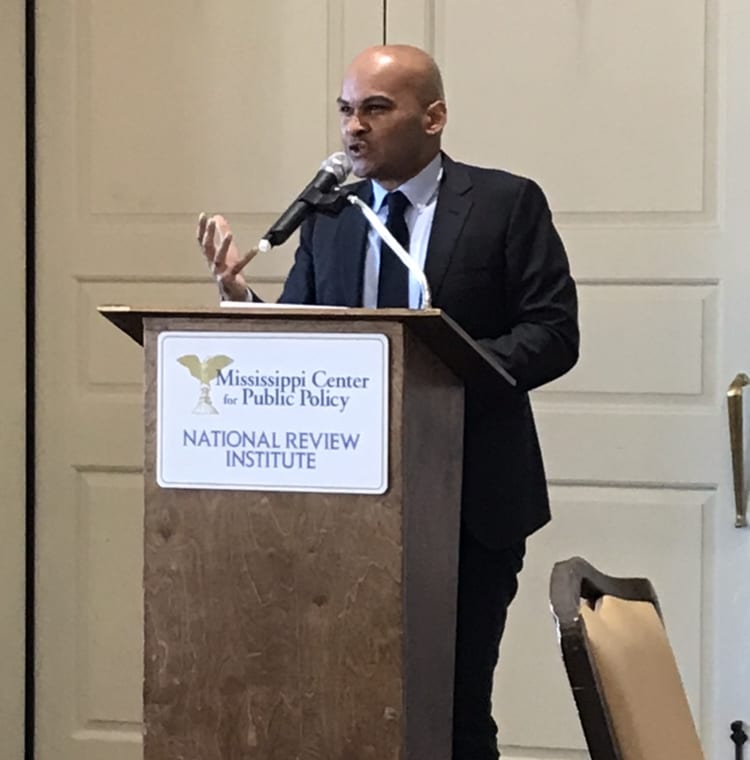
“The most common thing I hear people say about conservatives is that they ‘don’t really care about the future of the country the just hate people who are different,’ and that has never been my experience.” said Reihan Salam.
Salam is the Executive Editor of the National Review and author of “Melting Pot or Civil War?: A Son of Immigrants Makes the Case Against Open Borders.” Salam’s parents immigrated to the United States in 1976 to New York. His story is one of the characterization, effect and change of immigration in the U.S.
He spoke to guests about the evolving nature of immigration across the nation. He draws examples from the immigrated Bangladesh community he grew up among. Individuals who were the first to come entered into a country in which they were forced to adapt to an American culture, and naturally position into mainstream society. Whereas, those who came 20 years later were entering an entirely different type of country because there was a community already built, which meant the urge to enter mainstream society was not as great.
“This is one of those little things about immigration that we tend not to notice or pay attention to, that the context in which immigration is taking place matters a whole lot,” said Salam.
Shortly after America declared it’s independence American families were very large, with nearly 10 children, and in that context even with a high rate of immigration it won’t have the same impact because the majority of population growth comes from natural increase. In today’s climate and at the current rate immigration is growing, 90 percent of the population growth is solely from immigrants.
With such a high rate of population growth coming from a particular subsect, they will inevitably have an impact and influence over policy and politics.
He made not of one point that doesn’t get talked about in today’s conversation of immigration and that is what happened in the 1900. If you were an immigrant coming to the U.S. during this time from another country and struggled significantly or found it just didn’t fit with them, that person would return to their home country. Currently policy that isn’t even directly related to immigration provides a safety net for those individuals who otherwise would not have remained in the U.S.
“In the United states today you have that safety net that is there to catch you and that creates a very different set of incentives for immigrants,” said Salam. “It also introduces a really interesting tension.”
That tension plays out in politics according to Salam, where many leading Democrats are promising dramatic increases in size of government including new tax credits, base incomes etc. Salam says that these policies interact with immigration in a very real way.
“Let say you expand that safety net it might attract a different kind of immigrant, one that says well I’m fine working but if I can collect all these benefits that makes the proposition more attractive otherwise,” said Salam.
Salam spent time discussing the holes in the current immigration policy. He said currently immigration policy places too much of an emphasis on whether or not you already have a family member in the United States and liberally hands out visas for those individuals without taking into consideration skill set or job.
Salam’s book looks at immigration policy and why open borders are not the country’s best solution. It takes a look at the cultural, economic, and long term effects a high rate of unvetted immigrants pose on the United State’s as a whole. He emphasis the need to review immigration policies that will not add to the country’s poverty rate, but do the opposite, increase the economic climate.
The way immigration was addressed in the past may not be the correct policy of the 21stcentury. according to Salam. He encourages readers to see immigration through a multi-generation lens and how it will effect future generations.











